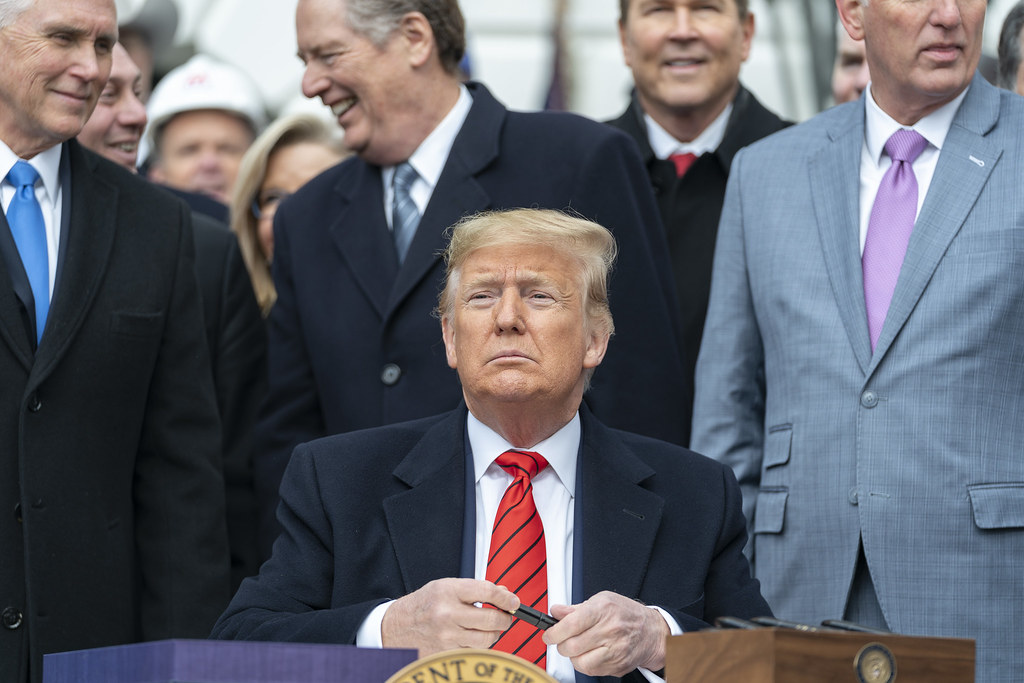
US President Donald Trump signed his landmark policy bill into law on Friday, a day after Congress narrowly approved the legislation. The signing event at the White House marked the enactment of key parts of Trump’s agenda, including tax cuts, increased defence spending, and a crackdown on immigration.
The 870-page package extends the 2017 tax cuts from Trump’s first term, implements significant cuts to Medicaid—the government’s healthcare program for low-income and disabled Americans—and offers new tax breaks on tipped income, overtime, and Social Security benefits. It also includes a $150 billion increase in defence spending, reduces Biden-era clean energy tax credits, and allocates $100 billion to Immigration and Customs Enforcement (ICE).
Moments before the signing, two B-2 bombers—like those used in recent strikes on Iran’s nuclear sites—flew over the White House.
Trump’s Remarks at the Signing
Speaking from the White House balcony, Trump thanked Republican lawmakers who helped pass the bill. He praised the tax cuts while downplaying concerns about reductions to social programs such as food assistance and Medicaid.
“The largest spending cut, and yet, you won’t even notice it,” Trump said. “The people are happy.”
He also highlighted increased resources for border enforcement and tax relief on tips, overtime, and Social Security for seniors.
The bill’s passage was marked by tension, including a nearly nine-hour speech by House Minority Leader Hakeem Jeffries, who called it an “extraordinary assault on the healthcare of the American people.” Despite the delay, the House voted 218 to 214 in favor, with only two Republicans opposing and all Democrats united against it. The Senate had earlier passed the bill with the Vice President casting a tie-breaking vote after three Republicans opposed it.
Public Reaction and Economic Concerns
Following the House vote, Trump called the bill a “phenomenal victory” and described it as a perfect Independence Day gift. However, polls show mixed public opinion with only 29% overall support, though two-thirds of Republicans back the bill.
Economists warn that while the tax cuts may create a short-term surplus, they will likely cause the federal deficit to balloon in the years ahead. The Congressional Budget Office estimates the bill could add trillions to the national debt. Critics argue the bill disproportionately benefits wealthier Americans, with 60% of the tax relief going to households earning over $217,000 annually.
Many low-income Americans express concern over cuts to food assistance programs. Jordan, a father of two who relies on SNAP benefits, worries that reductions may force him to work extra jobs to feed his family. The Medicaid cuts could result in nearly 12 million losing health coverage over the next decade, according to CBO estimates. Republicans defend these changes by citing efforts to reduce fraud and encourage work.
Author’s Opinion
This bill is a clear reflection of deep political divides, prioritizing short-term economic gains and tax breaks for the wealthy at the expense of vulnerable Americans relying on social safety nets. While touted as a catalyst for growth, its long-term impact on the national debt and public health raises serious questions about the government’s priorities. A sustainable policy must balance fiscal responsibility with compassion for those in need.
Featured image credit: Trump White House Archived via Flickr
For more stories like it, click the +Follow button at the top of this page to follow us.
